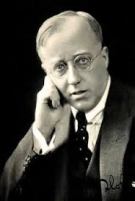

Fanny Mendelssohn was four years older than her brother Felix. As children they were very close, challenging and stimulating one-another intellectually and musically. They stayed in close contact for their entire lives.
The convention at the time was that Felix, though the younger, being male, would play the dominant rôle as a musician. They conformed to this, much to the detriment of Fanny. She could well have been Felix’s equal in ability, but she was discouraged from publishing her work, even by her brother (perhaps for complex reasons). As was ‘suitable for a lady’, her output was limited in the main to Lieder and piano pieces: salon music in effect. She has just 11 opus numbers to her credit, though her compositions number 500 (including one cantata, one oratorio, one overture and some chamber works). She started to publish just a year before her death, a venture in which her brother did not participate.
Fanny married the painter William Hensel – they had one child. She was a central figure in Berlin salon life (for which most of her music was written). Visiting Rome, she became friends with the young Gounod, who acknowledged her as an important influence on his developing style.
On 14th May 1847 she died suddenly of a stroke aged 41.









